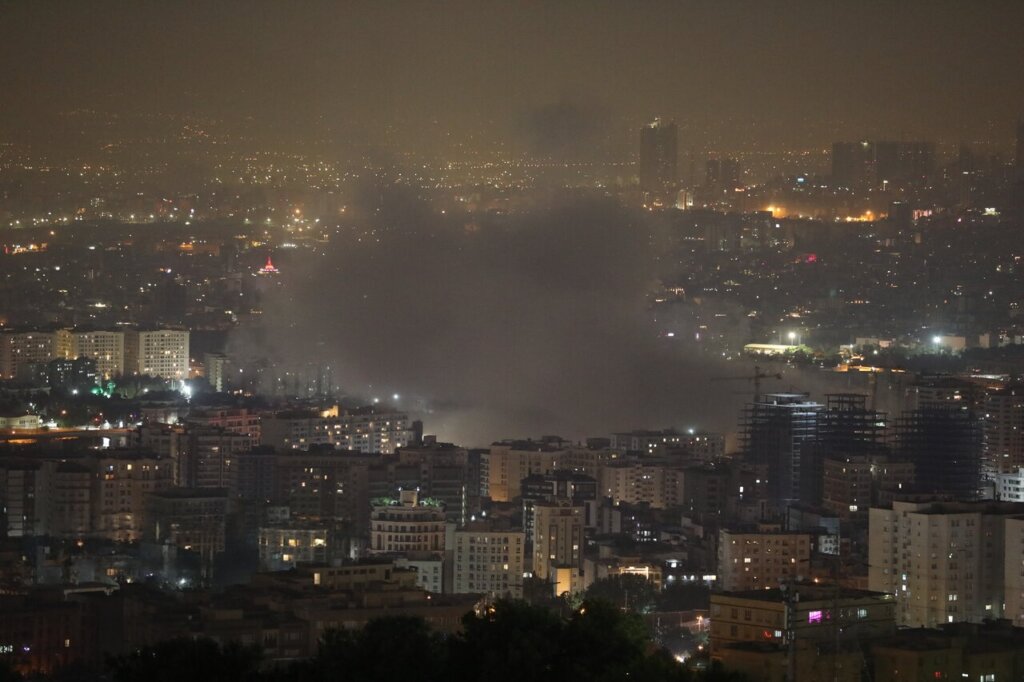
Ali Shadmani, Iran’s wartime chief of staff and a close advisor to Supreme Leader Ayatollah Ali Khamenei, was killed in an airstrike on a Tehran command center, according to Israeli military confirmation. Shadmani had just taken over as head of Iran’s Khatam-al Anbiya Central Headquarters after his predecessor was killed on Friday during Israel’s first onslaught.
According to the state-run IRIB news agency, Iran’s Cyber Security Command has charged Israel with initiating a broad cyberwar against its digital infrastructure, allegedly interfering with vital services.
One of Iran’s top military officers, Ali Shadmani, a senior advisor to Supreme Leader Ayatollah Khamenei, was killed by an Israeli airstrike deep within Tehran.
The conflict enters its sixth day with no signs of easing, there are constant and powerful explosions heard in west Tehran. The recently appointed head of Iran’s army has given a severe warning, claiming that the strikes on Israel thus far have only served as a warning.
Further escalation was indicated when General Abdolrahim Mousavi, the new army head, announced in a televised speech that punitive action would be implemented shortly. In the meantime, US President Donald Trump called for Iran’s unconditional capitulation on social media.
The Pentagon said that the USS Nimitz, the second carrier strike group to be sent to the Middle East, and other naval equipment are being sent there more quickly as tensions increase.
There are more and more calls for restraint. Egypt has warned that any escalation might destabilize the entire region and has asked Israel and Iran to withdraw.
King Abdullah II of Jordan warned the European Parliament in Brussels that Israeli attacks on Iran run the risk of starting a much larger conflict.
A ceasefire in Gaza and a de-escalation of hostilities throughout the Middle East were called for collectively at the G7 conference in Canada. The group did not, however, explicitly demand an end to hostilities between Iran and Israel.
In phone conversations with US Middle East ambassador Steve Witkoff and Iranian Foreign Minister Abbas Araghchi, Egyptian Foreign Minister Badr Abdelatty called for an early end to the fighting. In a speech to the European Parliament, King Abdullah II of Jordan emphasized the possibility of wider instability brought on by ongoing Israeli strikes on Iran, echoing Egypt’s warning that the conflict ran the risk of causing more widespread regional unrest.
Although its specifics are still unknown, French President Emmanuel Macron acknowledged that a ceasefire plan supported by the US is being considered. However, Tehran is said to have taken a tough stand on nuclear talks; according to some sources, Iran might only entertain a compromise until its retaliation actions against Israel are over.
“I estimate we are sending them back a very, very long time,” Israeli Prime Minister Benjamin Netanyahu said, claiming that ongoing operations have struck Iran’s nuclear program a serious setback. According to reports, Israel has carried out a well-coordinated mission to destroy several senior Iranian military commanders and hit numerous nuclear sites.
